Keynote Speakers
- Home
- For Participants
- Keynote Speakers
PEDG 2024 is an international symposium sponsored by IEEE Power Electronics Society (PELS) and is hosted by the Luxembourg Institute of Science and Technology (LIST) from June 23rd to 26th, 2024.
High-ranking keynote speakers from academia and industrial sectors will participate in PEDG 2024.
Keynote Speakers
- Prof. Hirofumi Akagi, Tokyo Institute of Technology (Japan)
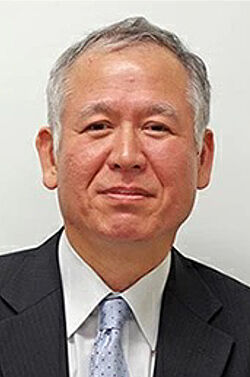
Presentation: The Instantaneous Power Theory in Three-Phase Circuits: Why and How did it Emerge in 1983?
This keynote pays attention to the emergence of the instantaneous power theory, or the p-q theory in three-phase circuits from the Nagaoka University of Technology, Nagaoka, Japan, in 1983. At international conferences, power electronics experts have often asked the following question to this speaker “Why and how was the theory established in 1983?” He has had no official chance or opportunity of answering the question. However, he gave graduate students a class lecture on both background and emerging process of the instantaneous power theory, and the subsequent effect on three-phase grid-tied converters and inverters. He will answer the question at this keynote presentation.
- Dr. Jessica Bian, Grid-X Partners (USA)
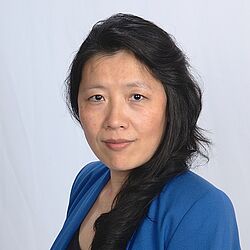
Presentation: Regulatory Aspects of Implementing Advanced Technology
Would deploying energy storage and/or other innovative technology alter business models and the utility of the future? We are experiencing significant changes in energy supply due to a number of factors, including the increased availability of renewables, demand-side and storage technologies; and new environmental requirements. This lecture provides an overview of US federal regulation of public utilities, including rate revision, challenge process, and the landmark orders that shaped energy industries we have today. In addition, the lecture offers insights of why energy industries moved from traditional cost-based regulation to competitive markets in an open access environment, and how regulators encourage the use of advanced technology in new transmission projects. Advanced transmission technologies increase the capacity, efficiency, or reliability of an existing or new transmission facility while continuing to ensure that consumers have access to sustainable energy at a reasonable cost.
- Prof. Frede Blaabjerg, Aalborg University (Denmark)
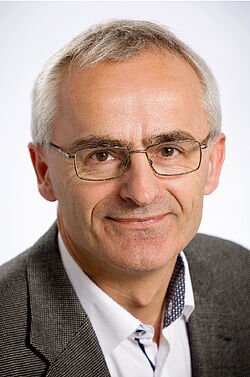
Presentation: Power Electronics Technology - Towards a Carbon Neutral Society
The energy paradigms in many countries (e.g., Germany and Denmark) have experienced a significant change from fossil-based resources to clean renewables (e.g., wind turbines and photovoltaics) in the past few decades. The scenario of highly penetrated renewables is going to be further enhanced– Denmark expects to be 100 percent fossil-free by 2050.Consequently, it is required that the production, distribution and use of the energy should be as technologically efficient as possible and incentives to save energy at the end-user should also be strengthened. In order to realize the transition smoothly and effectively, energy conversion systems, currently based on power electronics technology, will again play an essential role in this energy paradigm shift. Using highly efficient power electronics in power generation, power transmission/distribution and end-user application, together with advanced control solutions, can pave the way for renewable energies.
In light of this, some of the most emerging renewable energies — , e.g., wind energy and photovoltaic, which by means of power electronics are changing character as a major part in the electricity generation —, are discussed. Issues like technology development, implementation, power converter technologies, control of the systems, and synchronization are addressed. Special focuses are paid on the future trends in power electronics for those systems like how to lower the cost of energy and to develop emerging power devices and better reliability tool.
-
Prof. Dushan Boroyevich, Virginia Tech - CPES (USA)

Presentation: Future Systems for Transmission and Distribution of Electrical Energy?
One day every human being will be able to have as much energy as they need for enjoyable work and happy life, without harming the planet Earth that sustains us. The renewable technologies developed over the last 30 years can be sustainably and economically scaled-up to generate sufficient energy for all future human needs. Missing are the technologies to transport and distribute the free energy coming continuously from Sun to ten billion humans of tomorrow.Today, only ~20% of the total human energy consumption is from electricity. Since almost all sustainable energy is first converted to electricity, we may need to build 4-10 additional grids in the next 30 years for achieving the sustainable energy abundance! But, constant-frequency synchronous electromechanical grid cannot balance constantly varying distributed generation with variable consumption instantaneously, and anyway, why would we build additional new power systems using the 150-year old technology?
This session will explore possible power electronics solutions for transporting the energy from distributed renewable electricity generation and delivering it instantly to customers anywhere around the world.
-
Prof. Rik de Doncker, RWTH Aachen University (Germany)

Presentation: DC Technology for Flexible Electrical Grids enabling Sector Coupling - Can Technology Accelerate Innovation?
In this keynote speech, we explore the pivotal role of DC technology in revolutionizing electrical grids, emphasizing its flexibility and cost-effectiveness in distributing volatile renewable energy. The speech highlights how interconnected DC grids provide efficient, lowcost interoperability solutions, crucial for prosumers and fast charging services, thereby facilitating sector coupling in modern energy systems. We delve into the immense potential of renewable energy as the foundation for a sustainable energy supply in industrial societies. Furthermore, the presentation underscores the significance of power electronics as a key enabler in the transition towards a CO2-neutral society, marking a critical step in sustainable innovation and technological advancement.
-
Prof. Deepakraj M Divan, Georgia Institute of Technology, Atlanta (USA)
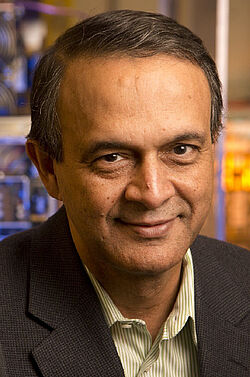
Presentation: The Power Grid as a Clean Ecosystem
An irreversible energy transition is underway, with serious disruption of the electricity grid likely over the next 10 years or so. With massive deployment of PV solar, wind, batteries and EVs underway, we need to rethink the future electricity system. We have to move from thinking of grid as a resource, to grid as an ecosystem, where connected sources and loads automatically and autonomously share energy and collaborate in real-time to – dynamically balance the system while ensuring stability; manage the economics, physics and cybersecurity of the system; where the network is poorly known, and devices span many technology generations and manufacturers; and where standards lag substantially. This should be done within an economic and policy framework that allows industry to make investments needed. This presentation will discuss what a transition from ‘grid as a resource’ to ‘grid as an ecosystem’ entails and how it can be a key enabler for the energy transformation.
-
Prof. Ulrike Grossner, ETH Zürich (Switzerland)
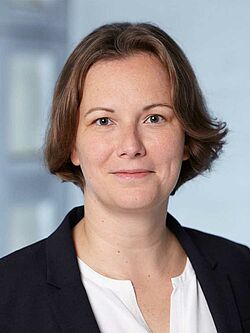
Presentation: Advanced Power Semiconductors for Decarbonized Energy Systems
This keynote will explore the transformative impact of advanced power semiconductors on decarbonized energy systems. Drawing from her extensive experience and her pioneering work in wide bandgap materials like SiC, Prof. Grossner will discuss the evolution and significance of power semiconductors in enhancing energy efficiency and sustainability. The speech will focus on the challenges and opportunities in integrating these advanced semiconductors into distributed energy systems, considering global sustainability goals.
Prof. Grossner will also touch upon her commitment to encouraging and mentoring young talent in the field. The presentation will conclude with a forward-looking perspective on the role of power semiconductor devices in achieving a sustainable energy future, inviting discussion on the next steps in semiconductor research and its impact on global energy solutions.
About PEDG 2024
PEDG 2024 is an international symposium sponsored by IEEE Power Electronics Society (PELS) and is hosted by the Luxembourg Institute of Science and Technology (LIST) from June 23rd to 26th, 2024.




Contact Us
Luxembourg Institute of Science and Technology (LIST)
5, Avenue des Hauts-Fourneaux
L-4362 Esch-sur-Alzette/Belval
Tel: +352 275 888 - 1
E-mail: pedg2024@list.lu
